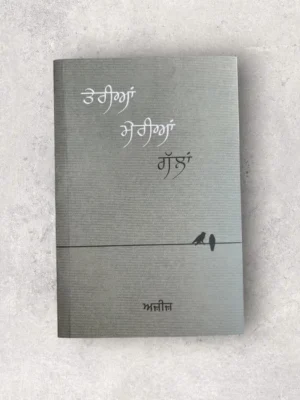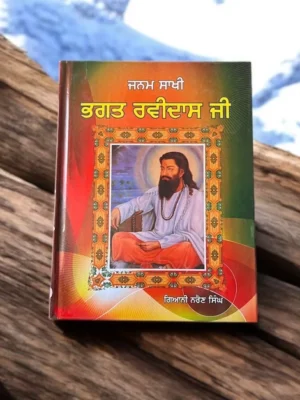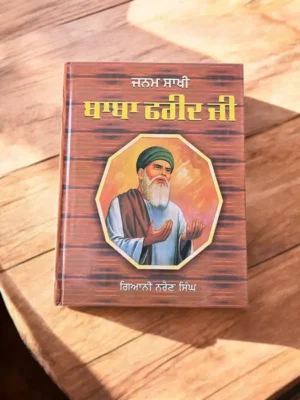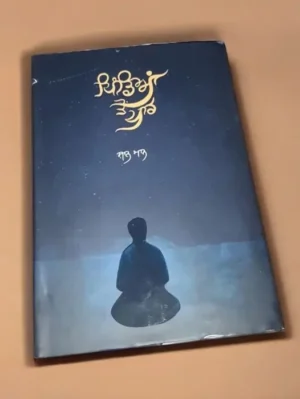
RIP Tajammul Kaleem: A Timeless Voice of Punjabi Poetry

The world of Punjabi literature has lost a luminous star with the passing of Tajammul Kaleem, a poet whose verses wove the fabric of human emotions, philosophical musings, and the raw realities of life. His departure leaves an irreplaceable void, yet his words—etched in the hearts of countless admirers—ensure that his legacy will endure, resonating through the ages like the gentle rustle of Punjab’s winds. Tajammul Kaleem was not merely a poet; he was a sage, a storyteller, and a beacon of truth whose shayari illuminated the struggles, dreams, and fleeting moments of humanity.
Born with an extraordinary gift for weaving emotions into words, Tajammul Kaleem’s poetry transcended linguistic and cultural boundaries, speaking directly to the soul. His collection, Kamaal Karde Ho Badshaho, stands as a monument to his brilliance, capturing the essence of love, loss, resilience, and the inexorable passage of time. His verses, such as the iconic “ਮਰਨ ਤੋਂ ਡਰਦੇ ਓ ਬਾਦਸ਼ਾਹੋ? ਕਮਾਲ ਕਰਦੇ ਓ ਬਾਦਸ਼ਾਹੋ।”, reflect a fearless spirit, urging readers to confront life’s truths with courage and grace. This line, brimming with defiance and wisdom, encapsulates Kaleem’s philosophy: to live boldly, to love deeply, and to embrace the impermanence of existence.
Kaleem’s poetry was a mirror to the human condition, reflecting both the heart’s quiet whispers and its loudest cries. His verses were not just words strung together in rhyme but profound meditations on life’s complexities. Take, for instance, his poignant lines: “ਬੋਰੀ ਬਿਸਤਰ ਬੰਨ੍ਹ ਕਲੀਮ, ਹੋਰ ਕਿਸੇ ਦਾ ਵਾਰਾ ਏ।” These words evoke a sense of transience, a reminder that life is a journey where each of us must eventually pack our bags and make way for others. The simplicity of the imagery—tying up a bundle of belongings—carries a universal truth about the inevitability of change and the cyclical nature of existence. Yet, in its brevity, it holds a depth that invites reflection, a hallmark of Kaleem’s craft.
Another gem from his oeuvre, “ਨੀਂਦਰ ਘੇਰ ਲਿਆ ਤੇ ਡਿੱਗਣਾ ਪੈਣਾਂ ਏ, ਆਈ ‘ਕਲੀਮਾਂ’ ਮੌਤ ਨੀ ਟਾਲ਼ੀ ਜਾ ਸਕਦੀ।”, speaks to the inescapable embrace of death, cloaked in the metaphor of sleep. Here, Kaleem confronts mortality with unflinching honesty, acknowledging its inevitability while weaving his own name into the verse, a signature touch that made his poetry deeply personal. This line is not one of despair but of acceptance, urging readers to face life’s end with the same grace they bring to its joys. It is this balance of raw truth and poetic beauty that made Kaleem a revered figure in modern Punjabi literature.
Tajammul Kaleem’s work was a tapestry of emotions, blending love, loss, social commentary, and philosophical inquiry. His poem “ਹੱਥੀਂ ਯਾਦਾਂ ਦੇ ਸ਼ਹਿਰ ਉਜਾੜ ਦਿੱਤੇ” paints a haunting picture of memories reduced to ruins, while “ਅੱਗ ਯਾਦਾਂ ਦੀ ਠਾਰ ਕੇ ਰੋਇਆ” captures the visceral pain of a heart scorched by nostalgia. His ability to distill complex emotions into simple yet powerful imagery set him apart. Whether he wrote of the ache of separation, the transient nature of happiness, or the mysteries of fate, his words carried a weight that lingered long after they were read or heard.
What made Kaleem’s poetry truly exceptional was its accessibility. He spoke to the common man—the farmer toiling in the fields, the lover nursing a broken heart, the wanderer searching for meaning. His verses were not confined to ivory towers but flowed like the rivers of Punjab, reaching every corner of society. Lines like “ਰੁੱਖਾਂ ਵਾਂਗ ਉਚੇਰੀ ਉੱਗੇ, ਗਾਟਾ ਬੀਜ ਦਲੇਰੀ ਉੱਗੇ” evoke resilience, likening human growth to trees rising tall from seeds of courage. This metaphor resonates deeply in a culture rooted in the land, where strength and perseverance are cherished values.
Kaleem’s poetry also carried a social conscience. He did not shy away from addressing the harsh realities of life, from poverty and injustice to the fleeting nature of worldly pleasures. In “ਜਿੱਥੇ ਫੁੱਲ ਕਪਾਹਾਂ ਦੇ ਲਾਲ ਵੇਖੇ,” he juxtaposes the beauty of cotton flowers with the bloodshed they witness, a subtle yet powerful commentary on the coexistence of beauty and pain. His words were a call to reflect, to question, and to find meaning in a world often marred by chaos.
The universality of Kaleem’s themes ensured that his poetry transcended borders. While rooted in Punjabi culture, his exploration of love, loss, and mortality spoke to readers far beyond Pakistan. His shayari found a home in the hearts of those who understood the language of the soul, regardless of their native tongue. His work was a bridge between tradition and modernity, blending classical Punjabi poetic forms with contemporary sensibilities.
As we mourn Tajammul Kaleem’s passing, we also celebrate the indelible mark he left on Punjabi literature. His words are a legacy that will continue to inspire poets, writers, and dreamers for generations. Each verse is a testament to his ability to capture the human experience with honesty and artistry. His poetry is a reminder that even in our darkest moments, there is beauty to be found, and in our fleeting joys, there is wisdom to be gained.
To Tajammul Kaleem, we say: you did great. Your words were a gift to the world, a kamaal that will never fade. You taught us to love fiercely, to grieve honestly, and to live bravely. As you rest in peace, your shayari will continue to stir hearts, ignite minds, and remind us of the power of words to heal and inspire.
In the words of the poet himself, “ਜੀਵਨ ਕੀ ਏ ਲੈ ਦੇ ਕੇ, ਚਾਰ ਦਿਨਾਂ ਸੈਰ ਤੇ ਬੱਸ।” Life is but a fleeting journey, and Tajammul Kaleem made his journey extraordinary. His verses will remain a guiding light, illuminating the path for those who seek truth, beauty, and meaning in the tapestry of existence.
Rest in peace, Badshah of Shayari. Your voice will echo forever in the winds of Punjab.
In loving memory of Tajammul Kaleem, whose poetry will forever be a beacon of light in Punjabi literature.
Writer - Preet
Shop Punjabi Books
Featured Posts

Sardar Ji 3: The Controversy & The Backlash Against Diljit Dosanjh

The Way of the Superior Man: A Comprehensive Book Summary to Transform Your Life

Ikigai: The Japanese Secret to a Long and Happy Life (Punjabi Edition)






















